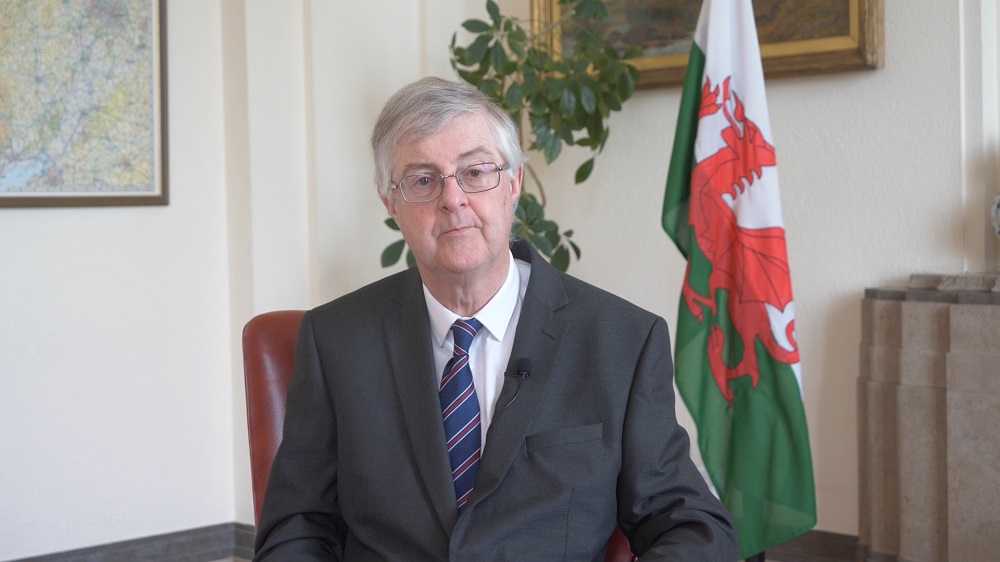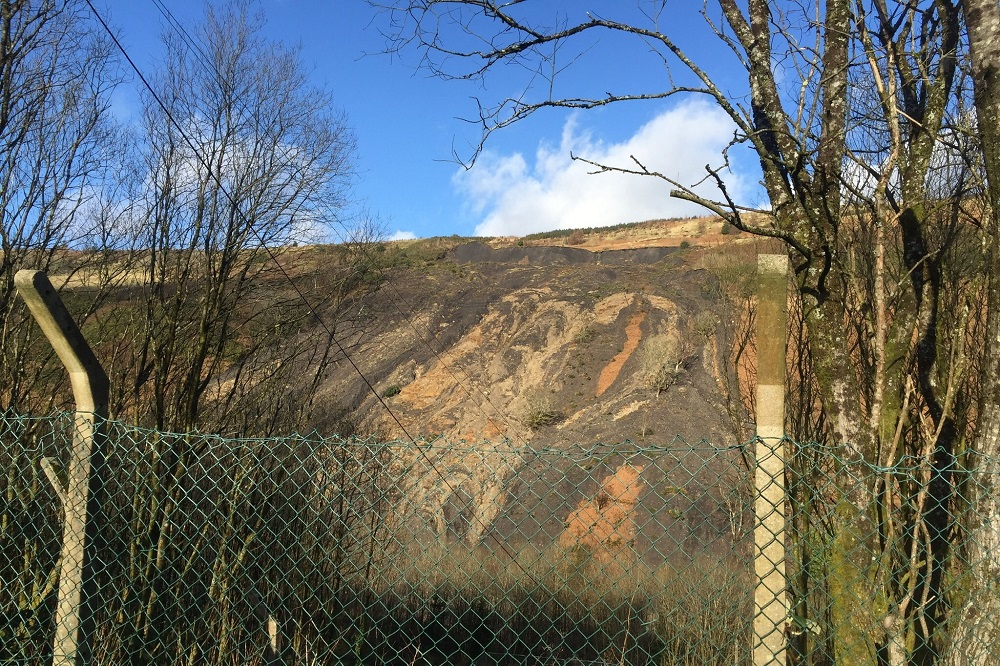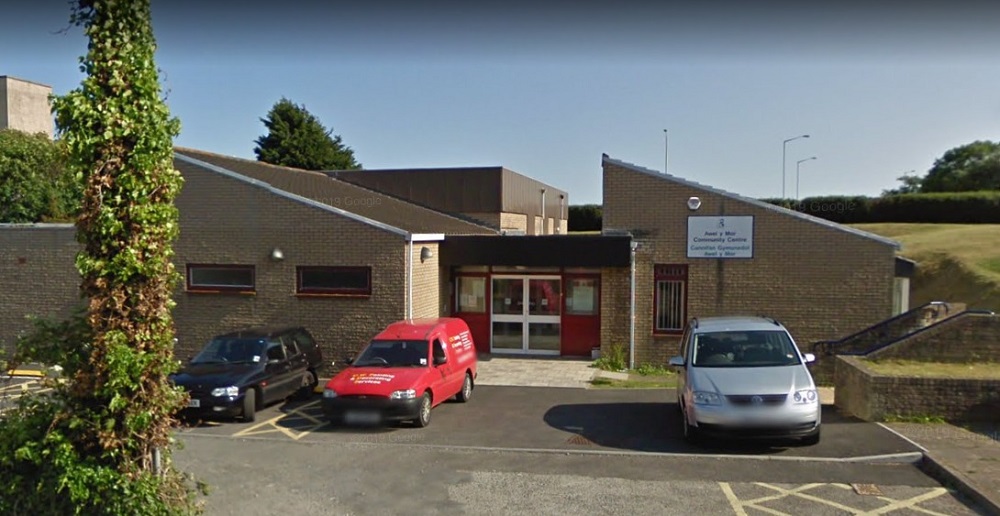News in brief: Drakeford warns strict lockdown will continue into February

First Minister Mark Drakeford says there will be no major changes to the lockdown restrictions in Wales until “reliable” and “sustainable” improvement is seen.
There have been recent signs that the spread of Covid-19 across the country might be slowing but concerns at the threat posed by several new variants of the virus and distortions to the statistics due to the Christmas and New Year holiday means government scientists are warning that current data should be treated with caution.
The latest guidance from the TAC group advising the government warns: “Because of the lag between people acquiring Covid-19 and testing positive, it is likely that any impact of the Christmas and New Year period on rates testing positive will not be fully evident until the second week of January.”
However, data from Public Health Wales has confirmed the proportion of positive tests per week across Wales has dropped from 23.9 % per 100,000 tests to 18.% and the weekly case rate of 344.8 per 100,000 people is the lowest it has been since the end of November.
The current lockdown measures are not due to be reviewed until January 29 when Mr Drakeford hinted “marginal easements” could be made.
“If things over the next two weeks continue to head in the right direction, then the cabinet will decide whether there is any headroom for us to begin the process of lessening the current level of restrictions that we all face”, he said.
“We would have to be certain that that improvement is reliable, sustainable in order for us to begin that journey of lifting the restrictions.
“We want to do that as soon as it is safe to do so, but it will have to be safe.”
“…even if you’re not able to go from level four to level three, within level four it may be possible, and it’s a ‘may’ – I really want to stress that it is a ‘may – it may be possible to have some marginal easements that would demonstrate to people that the efforts that they are making are making a difference”.
A further 55 people have died with coronavirus and 1,129 new cases of the virus have been confirmed in today’s update from Public Health Wales.
Of the newly recorded deaths, 14 were in the Betsi Cadwaladr health board area. Aneurin Bevan and Cwm Taf Morgannwg both reported 13 and there were six deaths Cardiff and Vale, five in Swansea Bay and four in Hywel Dda.
Wrexham (130) had the highest number of new cases, followed by Flintshire (105) and Cardiff (96).
Wrexham continues to have the highest weekly case rate in Wales at 840.7 per 100,000 people, down from 867.8 yesterday. It also has the highest positive test proportion over the last seven days at 28% per 100,000 tests, down from 28.8% yesterday.
Just four local authority areas in Wales now have positive test results of 20% or over, Wrexham, Flintshire, Bridgend and Torfaen.

Councillors to consider storage proposals for landslip debris
Anthony Lewis, local democracy reporter
Plans to store thousands of cubic metres of landslip material which fell down the mountain in Tylorstown during Storm Dennis last year will be considered by councillors next week.
Rhondda Cynon Taf Council has applied for what is mainly retrospective permission for the deposit and storage of approximately 30,000 cubic metres of material from the Tylorstown landslip.
In February last year Storm Dennis caused the Llanwonno Upper Tip to fail above the village of Tylorstown resulting in a large landslip followed by a smaller, secondary event.
This led to approximately 30,000 cubic metres of colliery tip material sliding down the slope and filling the valley bottom which filled the Rhondda Fach river diverting its course to the western side of the valley bottom.
Unstable
The diverted river began eroding the western bank of the river creating a vertically unstable face of approximately five metres which threatened to undermine the Rhondda Fach Leisure Centre car park adjacent to the top of the bank.
The slipped material also seriously damaged and breached a main sewer beneath the leisure centre downstream of the landslide, felled numerous trees in its wake and covered a water main below the former railway line.
There are two applications with one for each respective receptor site with the one involving 22,000 cubic metres on land across from Oaklands Business Park in Ferndale and the other involving 8,000 cubic metres near Station Road in Ferndale.
The deposit and storage of the material includes the formation of stockpiles, material consolidation, drainage and habitat and ecological mitigation measures.
The council said the sites were chosen as they were conveniently located close to the slip and the capacity was considered to be capable of safely accommodating the amount of material required to be stockpiled temporarily.
The application is retrospective because work was started without the benefit of planning consent due to the threat to the local buildings and infrastructure caused by the landslip and extensive scouring from the diverted river.
But the planning report said that the council had sought early advice from both the countryside, landscape and ecology section as well as the planning department and other in-house technical experts before any work had started.
Work to deposit the material on the receptor sites began in July 2020 and is expected to continue until February 2021.
The application proposes temporary storage of this material for no more than three years to allow sufficient time for consultation and monitoring before the submission of a planning application for the permanent scheme.
Concerns
There was one objection to the plans which criticised the use of retrospective planning and raised environmental concerns.
It also criticised the comprehensiveness of some of the ecological surveys and the limited ecological safeguards as well as the ecological mitigation and environmental compensation strategy.
The objector said there will be an adverse impact on ancient woodland and the work done is one dimensional.
They said proposals will have an impact on low chemical input farming and RCT as a landowner are “notoriously negligent” in allowing invasive species to both flourish and spread to neighbouring lands.
They said approval should not be given whilst the applicant continues to work in isolation and that a collaborative, comprehensive and detailed mitigation and restoration plan should be requested.
They also raised concern about the chemical stability of the material, groundwater contamination and the consequences of the development flooding downstream by the reduction in the flood plain.
Finally they are concerned about the use by scramblers (motorcycles) on council land and a lack of “policing” of activities on it.
But the planning officers at RCT Council have recommended it for approval.
They said: “The development, while largely retrospective, has been necessary to remediate the landslip that occurred earlier this year.
“Fortunately, nobody was injured as a result of this incident, but it was clear that action to remove the material from the river was urgently necessary.
“The proposal represents the most efficient and environmentally sustainable of the (limited) options available.
“While the stockpiling of this material will have some negative visual impact, it is necessary (for safety reasons) to dry out the material before it can be worked and will only be for a temporary period before being removed /remodelled.
“This will be the subject of a separate planning application (to be made at a future date).”
They said: “The impacts (environmental and otherwise) of the works are not considered to be significant and the retention and completion of the earth movements are considered acceptable.
“As the works are largely complete (scheduled to be completed in February) it is not considered that any many additional conditions are necessary other than to define the plans and documents that comprise the proposal (including mitigation) and the duration of the storage of the material (and its subsequent removal/reprofiling).”
If committee decides, at its meeting on Thursday, January 21, to refuse the applications then the material will need to be moved to an alternative location which would likely need the submission of another planning application.

Tories call for public engagement with Clean Air Bill consultation
The Welsh Conservative Shadow Minister for Climate Change, Energy and Rural Affairs, Janet Finch-Saunders MS, has urged members of the public to contribute to the Welsh Government’s open consultation on the White Paper on a Clean Air (Wales) Bill, to “collectively press the case for urgent action to be taken”.
It is currently estimated poor air quality contributes to a reduced life expectancy and up to 1,400 deaths in Wales each year and the World Health Organisation describes air pollution as the single largest environmental health risk, globally.
Under the Bill, which was published earlier this week, new air quality targets would introduce a requirement for a review of plans to tackle air pollution every five years. However, there is no longer time to pass the Bill into law until after the Senedd elections due to be held in May.
“I urge members of the public to contribute to this new Welsh Government consultation, ensuring that we collectively press the case for urgent action,” Mrs Finch-Saunders said.
“The First Minister set out to bring a whirlwind of change by making a key commitment but has seen his Cabinet produce a White Paper through which improvements will be achieved at a slow pace that is not reflective of the urgency of the crisis in Wales.
“Poor air quality is the greatest environmental risk to public health. In fact, it contributes to a reduced life expectancy and death, tallying an equivalent of between 1,000 and 1,400 mortalities in Wales each year, and costing the Welsh NHS approximately £1 billion each year.
“Urgent action is needed, yet Welsh Labour has failed to pass a Clean Air Act into law before the end of this current Welsh Parliament and has produced a White Paper full of air holes.
“No key date is given for when the Bill will be laid in the Senedd and it could take a further two years after the Bill receives Royal Assent for new regulations to be set.
“Targets set using the framework only have to be reviewed every five years when this could be achieved annually. It could take over eight months for new actions to be outlined to address target non-compliance.”
“Wales deserves better and this issue requires urgent action. This is why the Welsh Conservatives have committed to introducing a Clean Air Act within the first 100 days of Government to significantly improve Wales’ air quality, as well as people’s health,” the shadow minister added.

New mobile testing site opens in Bridgend
Hannah Neary, local democracy reporter
A new mobile testing site has opened in Bridgend for walk-in appointments.
Bridgend County Borough Council confirmed a new site will be available to locals at Awel y Mor Community Centre, Hutchwns Terrace, Porthcawl.
The Porthcawl facility will replace the facility at the Richard Price Centre, Llangeinor. It will be open between 9am 4pm, seven days a week until January 21. Locals who intend to use the walk-in test centre do not need to book an appointment.
Bridgend is currently the local authority with the third-highest coronavirus infection rate in Wales with a seven-day rate 572.6 cases per 100,000 population.
Wrexham has the highest rate with a rate of 922.4 cases per 100,000 population while Flintshire is second-highest with 641.9 cases per 100,000.
Council leader Huw David said: “We are still seeing high levels of coronavirus across the county borough, and with alert level four conditions in place across Wales, we must do all that we can to help limit the spread of the virus.
“Demand for the mobile testing facilities is high, so please only use them if you are exhibiting any symptoms of Covid-19 and keep on observing the basic rules which are designed to keep us all safe.
“The vaccine roll-out is underway, and priority groups are being targeted first. You will be contacted when it is your turn, so please do not tie up resources by enquiring about it at a pharmacist or GP.
“On no account should anyone try to access a vaccination centre without having an appointment in place to do so.
“As the effects of the vaccine may not be seen nationally for many months, the advice on keeping Wales safe remains the same for everyone.”
Appointments can be made by visiting the Welsh Government website or calling 119. People with hearing or speech difficulties can book an appointment by calling 18001119.

Support our Nation today
For the price of a cup of coffee a month you can help us create an independent, not-for-profit, national news service for the people of Wales, by the people of Wales.





